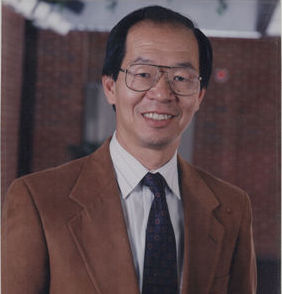Frederick Pei Li
Frederick Pei Li[edit | edit source]
Frederick Pei Li (1940–2015) was a pioneering American physician and researcher known for his work in the field of cancer genetics. He is best known for co-discovering the Li-Fraumeni syndrome, a hereditary condition that greatly increases the risk of developing several types of cancer.
Early Life and Education[edit | edit source]
Frederick Pei Li was born in 1940 in Canton, China. He immigrated to the United States with his family, where he pursued his education. Li attended Yale University, where he earned his undergraduate degree. He then went on to receive his medical degree from the University of Rochester School of Medicine.
Career[edit | edit source]
Li began his career in medicine with a focus on oncology and genetics. He joined the National Cancer Institute (NCI) in the 1960s, where he worked alongside Dr. Joseph Fraumeni. Together, they conducted groundbreaking research that led to the identification of the Li-Fraumeni syndrome.
Li-Fraumeni Syndrome[edit | edit source]
Li-Fraumeni syndrome is a rare genetic disorder characterized by a predisposition to a wide range of cancers, including breast cancer, sarcoma, leukemia, and brain tumors. The syndrome is associated with mutations in the TP53 gene, which plays a critical role in regulating the cell cycle and preventing tumor formation.
Li's work in identifying this syndrome has had a profound impact on the field of cancer genetics, providing valuable insights into the hereditary nature of cancer and the role of genetic mutations in cancer development.
Contributions to Medicine[edit | edit source]
Frederick Pei Li's contributions to medicine extend beyond the discovery of Li-Fraumeni syndrome. He was a strong advocate for the integration of genetic counseling and testing in clinical practice, emphasizing the importance of understanding genetic risk factors in cancer prevention and treatment.
Li also played a key role in developing guidelines for the management of patients with hereditary cancer syndromes, helping to shape the way these conditions are diagnosed and treated today.
Legacy[edit | edit source]
Frederick Pei Li's work has left a lasting legacy in the field of medical genetics and oncology. His research has paved the way for advancements in genetic testing and personalized medicine, allowing for more targeted and effective cancer treatments.
Li's dedication to understanding the genetic basis of cancer has inspired countless researchers and clinicians, and his contributions continue to influence the field of cancer research and treatment.
Related Pages[edit | edit source]
Search WikiMD
Ad.Tired of being Overweight? Try W8MD's NYC physician weight loss.
Semaglutide (Ozempic / Wegovy and Tirzepatide (Mounjaro / Zepbound) available. Call 718 946 5500.
Advertise on WikiMD
|
WikiMD's Wellness Encyclopedia |
| Let Food Be Thy Medicine Medicine Thy Food - Hippocrates |
Translate this page: - East Asian
中文,
日本,
한국어,
South Asian
हिन्दी,
தமிழ்,
తెలుగు,
Urdu,
ಕನ್ನಡ,
Southeast Asian
Indonesian,
Vietnamese,
Thai,
မြန်မာဘာသာ,
বাংলা
European
español,
Deutsch,
français,
Greek,
português do Brasil,
polski,
română,
русский,
Nederlands,
norsk,
svenska,
suomi,
Italian
Middle Eastern & African
عربى,
Turkish,
Persian,
Hebrew,
Afrikaans,
isiZulu,
Kiswahili,
Other
Bulgarian,
Hungarian,
Czech,
Swedish,
മലയാളം,
मराठी,
ਪੰਜਾਬੀ,
ગુજરાતી,
Portuguese,
Ukrainian
Medical Disclaimer: WikiMD is not a substitute for professional medical advice. The information on WikiMD is provided as an information resource only, may be incorrect, outdated or misleading, and is not to be used or relied on for any diagnostic or treatment purposes. Please consult your health care provider before making any healthcare decisions or for guidance about a specific medical condition. WikiMD expressly disclaims responsibility, and shall have no liability, for any damages, loss, injury, or liability whatsoever suffered as a result of your reliance on the information contained in this site. By visiting this site you agree to the foregoing terms and conditions, which may from time to time be changed or supplemented by WikiMD. If you do not agree to the foregoing terms and conditions, you should not enter or use this site. See full disclaimer.
Credits:Most images are courtesy of Wikimedia commons, and templates, categories Wikipedia, licensed under CC BY SA or similar.
Contributors: Prab R. Tumpati, MD

